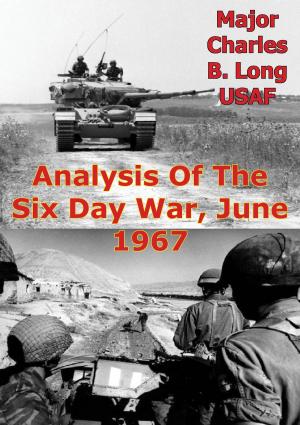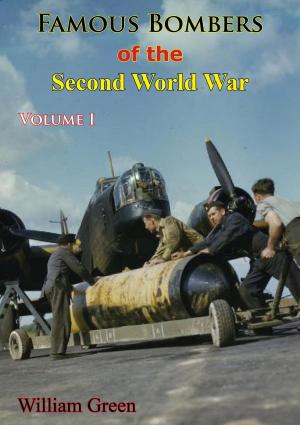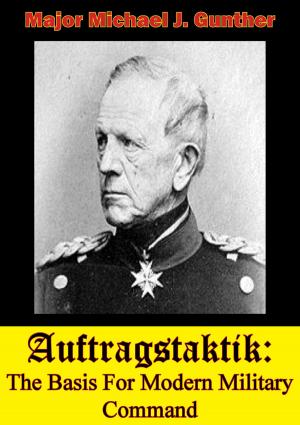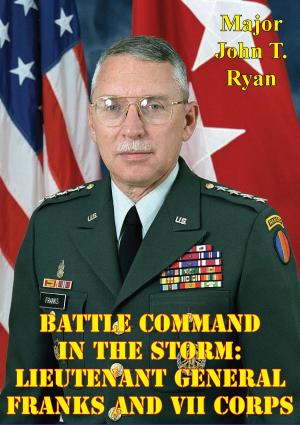Operational And Strategic Lessons Of The War In Afghanistan, 1979-1990
Nonfiction, History, Middle East, Persian Gulf War, Military| Author: | Dr Stephen J. Blank | ISBN: | 9781782896630 |
| Publisher: | Tannenberg Publishing | Publication: | August 15, 2014 |
| Imprint: | Tannenberg Publishing | Language: | English |
| Author: | Dr Stephen J. Blank |
| ISBN: | 9781782896630 |
| Publisher: | Tannenberg Publishing |
| Publication: | August 15, 2014 |
| Imprint: | Tannenberg Publishing |
| Language: | English |
The Soviet invasion of Afghanistan at the end of 1979 was, in many respects, a milestone in Soviet history. On the one hand it represented the high-water mark of Soviet intervention in Third World states and thus served as the archetypical example and justification for the intensification of the cold war in the early 1980s. On the other hand, the ultimate defeat and poor performance by this military in Afghanistan was one of the key forces that triggered the drive for a comprehensive reform of the entire Soviet national security system and its decision-making structures. Thus this war had profound domestic and foreign repercussions.
This analysis focuses on the purely operational and strategic lessons of the war. It insists that lessons of these kinds were present and that they offer significant insights both for such wars in general and for the course of Soviet military developments in the 1980s and 1990s. These lessons also offer important clues concerning the reforms required in order to preserve democratic civilian control over the military. It should also alert analysts everywhere as to the nature of local wars in the Third World in the 1990s, a phenomenon that shows little sign of abating. Though in many ways like all wars, this war was unique; it was not merely a series of random tactical exercises that were ultimately futile. Rather, like all wars, it shows us something of the shape of our present and future, if we are only insightful enough to understand it correctly.
The Soviet invasion of Afghanistan at the end of 1979 was, in many respects, a milestone in Soviet history. On the one hand it represented the high-water mark of Soviet intervention in Third World states and thus served as the archetypical example and justification for the intensification of the cold war in the early 1980s. On the other hand, the ultimate defeat and poor performance by this military in Afghanistan was one of the key forces that triggered the drive for a comprehensive reform of the entire Soviet national security system and its decision-making structures. Thus this war had profound domestic and foreign repercussions.
This analysis focuses on the purely operational and strategic lessons of the war. It insists that lessons of these kinds were present and that they offer significant insights both for such wars in general and for the course of Soviet military developments in the 1980s and 1990s. These lessons also offer important clues concerning the reforms required in order to preserve democratic civilian control over the military. It should also alert analysts everywhere as to the nature of local wars in the Third World in the 1990s, a phenomenon that shows little sign of abating. Though in many ways like all wars, this war was unique; it was not merely a series of random tactical exercises that were ultimately futile. Rather, like all wars, it shows us something of the shape of our present and future, if we are only insightful enough to understand it correctly.








![Cover of the book To Save A City: The Berlin Airlift, 1948-1949 [Illustrated Edition] by Dr Stephen J. Blank](https://www.kuoky.com/images/2015/november/300x300/9781786252487-Adty_300x.jpg)


![Cover of the book D-Day 1944 - Air Power Over The Normandy Beaches And Beyond [Illustrated Edition] by Dr Stephen J. Blank](https://www.kuoky.com/images/2014/august/300x300/9781782898870-gH4f_300x.jpg)
![Cover of the book Strategy For Defeat: The Luftwaffe, 1933-1945 [Illustrated Edition] by Dr Stephen J. Blank](https://www.kuoky.com/images/2015/november/300x300/9781786257703-egzS_300x.jpg)


